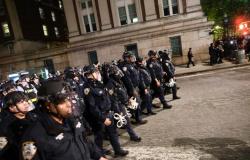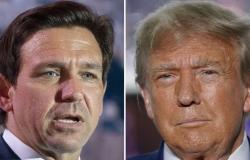Kuleba would call it a conditional success.
Ukrainian Foreign Minister Dmytro Kuleba’s talks in New Delhi on Friday mainly revolved around meetings with just two Indian officials — his Indian counterpart S. Jaishankar and Deputy National Security Adviser Vikram Misri. Prime Minister Narendra Modi did not receive Kuleba. All in all, the host country took a studiedly low-key approach to Kuleba’s visit.
Like Banquo’s ghost at Macbeth’s banquet for the Scottish lords in Shakespeare’s play, the horrific terrorist attack on Moscow City Hall on March 22 dramatized Kuleba’s visit.
In this situation, the poise and dignity with which Jaishankar acted as the steadfast host was remarkable. Unlike Macbeth who was so distraught that the lords were asked to leave while he decided to visit the witches the next day, Jaishankar was the consummate diplomat, even though cross-border terrorism – especially the state-sponsored variety – is a very sensitive subject for Indians.
Not until the latest news from the Crocus town hall reached Jaishankar as he traveled through Singapore on an ASEAN tour did he speak of India’s deep relationship with Russia. Jaishankar emphasized why India should and will look at relations with Russia from its perspective.
“So tell me, has Russia helped us or hurt us? Has Russia contributed or hindered at decisive moments? Go ahead and answer whether there are gains to be made from Russia, or are there only disadvantages that will come from it”? Jaishankar asked.
He added, “So if I do my calculations from my perspective and my experiences, I will get the answer. And the answer in this matter is that Russia is a country with which we have always had a positive relationship”.
“Both India and Russia have taken extra good care of each other’s interests. So I think we should have that confidence as we move forward.”
Jaishankar’s comments actually set the tone for Kuleba’s visit a week later. There was something incoherent about the timing of Kuleba’s visit. While he was holding talks in Delhi, word came from Moscow that the Russian investigators of the Crocus City Hall incident were closing in on the evidence of Ukrainian nationalists’ complicity in the incident. On Friday, they had collected the evidence that the perpetrators were paid in cryptocurrency.
Kuleba’s mission was primarily aimed at getting India on board at a likely “peace summit” in Switzerland this summer based on the so-called “formula for peace” that President Vladimir Zelensky had put forward in November 2022 and called for, among other things, the withdrawal of Russian forces from its new territories Donbass, Zaporozhye and Kherson oblasts and the Crimean peninsula. Before Kuleba’s arrival in Delhi, Zelensky called Prime Minister Narendra Modi to urge him to attend the “peace summit”. However, Modi’s response was limited to affirming the “consistent support of India for all efforts aimed at achieving peace and ending the conflict as soon as possible”.
The strange thing about the peace summit is the West’s plan to keep Russia out of the meeting to develop a resolution plan and only afterwards to inform Moscow of their decision. The idea is to isolate Russia.
The catch here is that Zelensky has passed a law that expressly prohibits him from participating in peace talks with Russia. He apparently did this to appease the US and UK! On the other hand, Ukraine today finds itself in a much weaker position. The West is no longer sure that Russia can be defeated in the war.
Zelensky’s formula for peace is not gaining traction in the Global South. This is where the eventual participation of China and India in the planned summit in Switzerland is seen by Ukraine and its Western mentors as a potential game changer.
India associated itself with the process at the earlier meetings in Saudi Arabia and Turkey, while it did not mark any change in the Indian stance on the Ukraine issue as such. India is closely following China’s footsteps in such trapeze exercises, and Beijing has already signaled that it is considering participating in the upcoming peace summit, while adding a caveat that all interested parties, including Russia, must be involved in resolving the Ukrainian crisis . Delhi is likely to emulate Beijing’s stance.
While in Delhi, Kuleba was uncharacteristically reticent about the no-go area in India’s relations with Russia. But glimpses of his sharp wit were on display in a separate interview with the Financial Times, a newspaper that, as a keen observer of Washington politics, he knew was exceptionally close to the Biden administration.
Kuleba openly challenged Jaishankar’s remarks in Singapore by telling the FT that “cooperation between India and Russia is largely based on the Soviet legacy. But this is not the legacy that will be preserved for centuries; it is a legacy that evaporates”.
To a great extent, Kuleba added, “The Sino-Russian relationship should be of special concern to India in light of its national security prerogatives.” The gratuitous remarks revealed a sense of frustration.
Of course, the FT noted that “Kyiv has struggled to win sympathy from India and many other countries in the so-called global south. These states have largely avoided taking sides in a war they see as the business of rich nations, and whose economic price they have paid in disrupted trade and higher costs”.
“Ukrainians’ push for a potential rebalancing of ties between New Delhi and Moscow is unlikely to find any buyers in a country that prides itself on its independent foreign policy and has a decades-old close relationship with Russia…Prime Minister Narendra Modi expressed earlier this month “warm congratulations » to Putin after his re-election in an election that the opposition had no meaningful chance of contesting.
The conclusion, however, is that Delhi may send a representative to the summit in Switzerland, but that it is unlikely to change its original position on the need to resolve the conflict on a bilateral basis. So Delhi’s representative, while registering his presence in Switzerland, will keep his eyes and ears open, but will not sign up for anything that tramples on Russia’s sensitivities and core affairs.
Nevertheless, Kuleba can claim to have been successful in his mission to Delhi to the extent that he can interpret Indian participation in the summit and portray it as a large-scale event involving the non-Western world as well.
Delhi is well aware of the high probability that the Ukraine war could escalate after the terrorist attack on Moscow’s Crocus City Hall. The Biden administration is completely uninterested in any peace talks with Russia – at least not before the November election.
This is evident in the tantalizing hint given by Chairman of the US Joint Chiefs General CQ Brown on Thursday that providing long-range ATACMS missiles to Ukraine that can reach Moscow would not necessarily mean crossing the Kremlin’s ‘red line’. According to Defense One magazine, Russia’s muted response to a series of recent Ukrainian attacks well inside Russian territory has encouraged the Pentagon to draw such a bold conclusion.
This article was published on the blog of MK Bhadrakumar.







